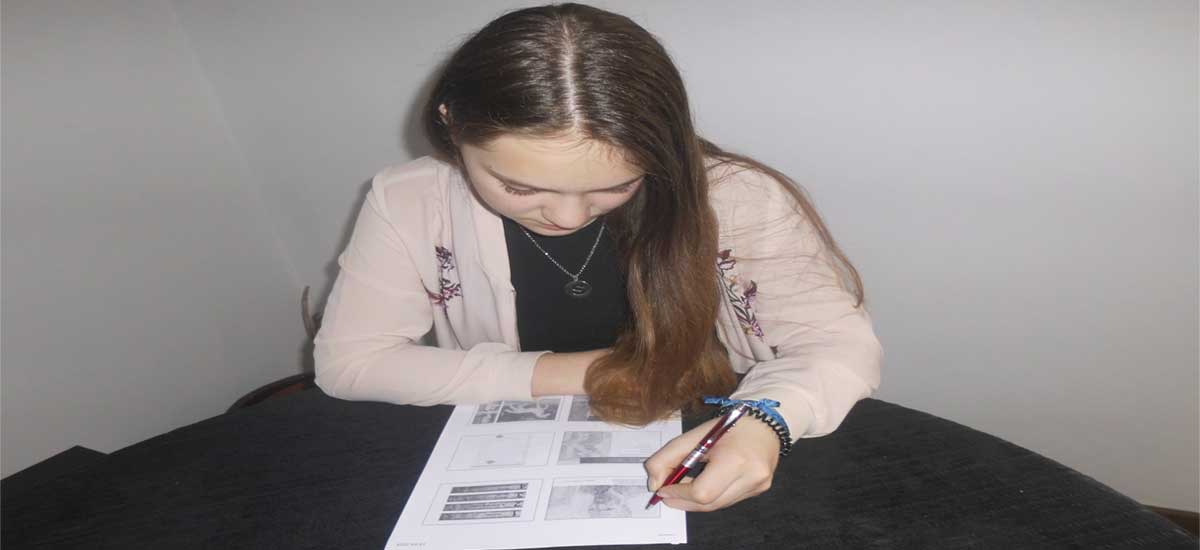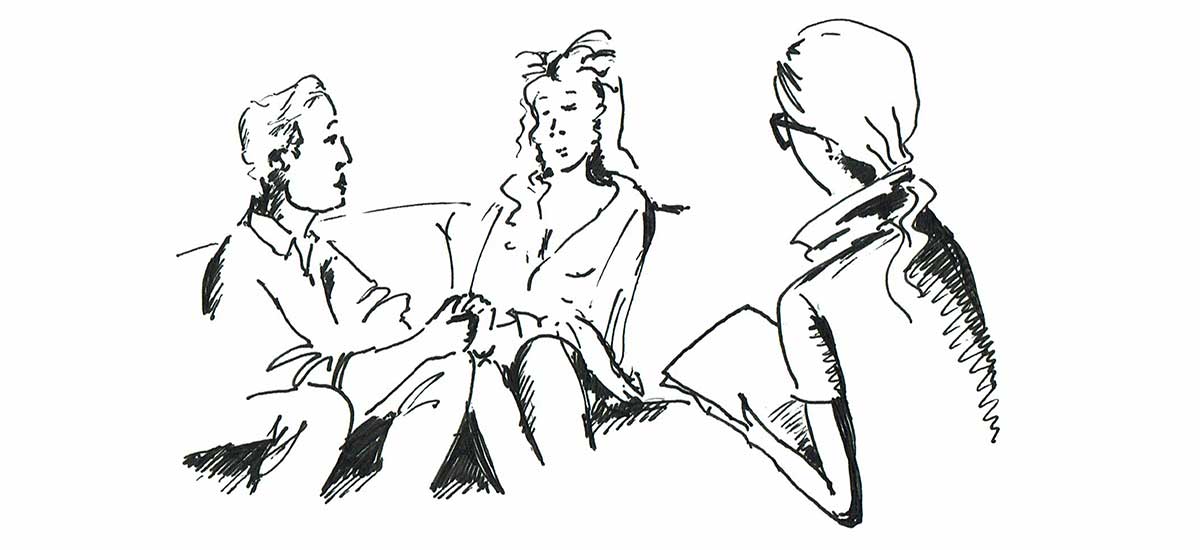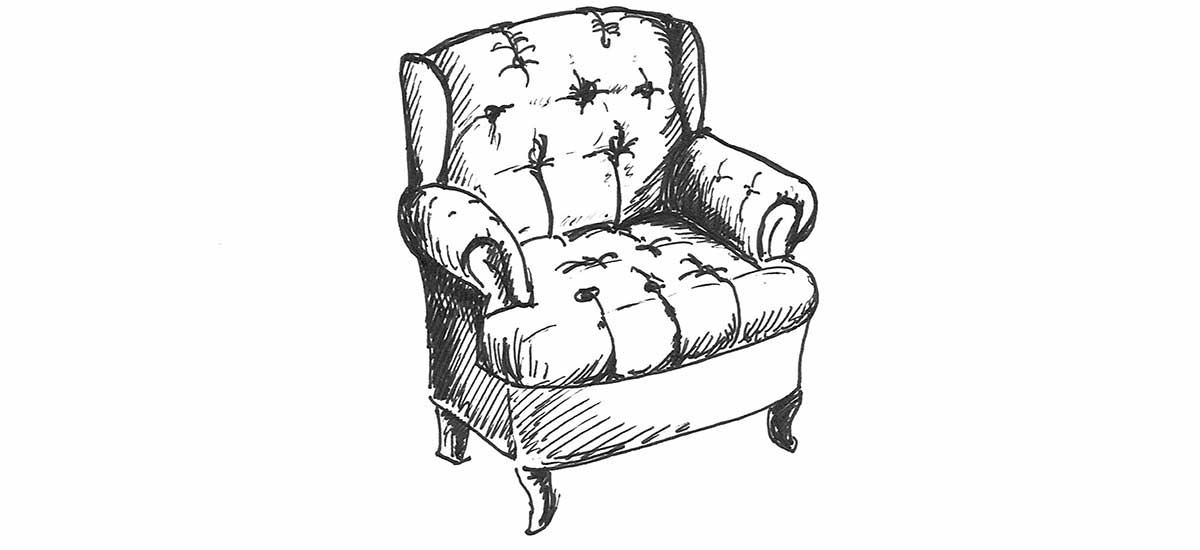Advanced adulthood can bring questions and doubts about the choices and consequences dating from the beginning of life to the present. At an older age, problems can arise regarding loneliness, significant losses, difficult struggles, changes in intimacy and sexuality, health decreases, integration difficulties, physical changes, family dynamics,
Read more →The caregiver support consultation can be applied to individuals who are responsible for people with disabilities and physical and mental illnesses in an intensive manner. Continued care often causes doubts, emotional exhaustion, and negative feelings, such as distress and fears, ultimately negatively affecting the caregiver’s health and
Read more →Vocational orientation allows the analysis of the interests, personality and competences of the individual, in order to provide indications regarding academic and professional path, as well as deepening a personal path. The choice for school path often occurs in the 9th year, that is, when the adolescent
Read more →Forensic psychological evaluation in criminal procedures is intended to analyse the psychology of adults and minors, as witnesses and agents of crime. How can forensic psychological evaluation help? The psychological evaluation is carried out in five consultations and may include the production of a forensic expert report
Read more →Forensic psychological evaluation in civil procedure is intended to evaluate the psychological performance of the child (child or young person), regarding their symptoms, personality and emotional and intellectual aspects, more precisely in relation to the parental responsibility, development and residence of the minor, mistreatment, violence, sexual abuse
Read more →The psychological evaluation allows a detailed examination of the psychological functioning of the individual, using psychometric and projective techniques that can cover several areas: intelligence, personality, intra-psychic dynamics, among others. The client will be given a report containing conclusions, therapeutic alternatives and possible difficulties. The psychological evaluation
Read more →Occupational stress usually occurs in the individual’s workspace and may lead to intense and continuous physical and psychological instability. It can be caused by a variety of reasons: pressure at work, long work hours, dissatisfaction with work, unpleasant relationships with bosses and colleagues, delayed payments, among others.
Read more →The experience of LGBT individuals may include discrimination and difficulties in affirming their identity, in family relationships and integration with others, which can have negative physiological and psychological effects. LGBT individuals may be subject to hate, stigma, discouragement and misunderstanding. There may be objective and material consequences.
Read more →Sexual difficulties that are not clear to an individual may affect their sexual desire, sexual expression and intimacy of the individual or dyad. The lack of ability to associate sexuality with affectivity can also provoke and prolong a sexual problem, which in turn can influence the individual’s
Read more →Problems and disagreements in the couple can occur for a variety of reasons, including lack of dialogue, family pressure, sexual dysfunction, chronic illness, intimacy problems, lack of sexual interest, loss of trust and unfaithfulness, separation, problems with children, and professional problems, among others. How can couples therapy
Read more →Pregnancy, parenthood and puerperium are periods of significant physical and psychological transformation and challenges for the mother, for both parents, and for the extended family. Parenting is a process of giving birth to a mother and father, where attachment allows for affective development. Based on the ties
Read more →Generating a child can be very important for the self-concept of parents and for the consolidation of family relationships. However, there may also be is a negative impact, when the decision to have children is not followed by idealized physical performance. The couple or one of the
Read more →Bulimia is a relatively frequent eating disorder. This problem arises when a large amount of food is ingested and then followed by a feeling of fear of getting fatter, which leads later to elimination behaviours of ingested food, such as the induction of vomiting, intense physical activity,
Read more →Other food problems are signalled by significant and long-lasting changes in eating behaviour. People with anorexia nervosa present a distorted vision of their body shape and weight (for example young female). These individuals may see their body as aesthetically inappropriate, but in reality, this perception does not
Read more →Obesity is in addition to being overweight, a pathology defined by a amount of body weight disproportionate to the individual’s structure. The evolution of obesity may be related to family genetics, poor diet, absence of physical exercise, sedentary lifestyle, medication intake, emotional and psychological causes, metabolic alterations
Read more →When an individual is subjected to intense emotional and traumatic situations —such as assault, rape, torture, war, vehicular accident, accidents at work or natural disasters— these may lead to trauma, with the experience of fear, anxiety or horror. The individual may experience paralyzing fear, persistent re-experiencing of
Read more →Anxiety can be triggered by environmental, biological, genetic and psychological aspects, and may be present along with depression. Some circumstances can lead to anxiety, such as: continued stress, traumatic experiences both in childhood and adulthood, substance intake (e.g., drugs, alcohol, and smoking) and personality traits (e.g., perfectionism
Read more →Symptoms of depression may include discouragement, hopelessness, demotivation, anguish, sadness, irritation, frustration, worry, guilt, apathy, impotence, and revolt, and may be a result of the individual’s past traumatic experiences. Enthusiasm and enjoyment of the activities he or she performs may be diminished or simply cease to exist.
Read more →Adults may look for psychotherapy when there are difficulties in different areas of life, disorders (e.g. depression, anxiety), normative or eminent crises, and need for personal development. In a consultation, adults sometimes refer traumas, anxieties, worries, fears, sleep and appetite changes, doubts, hopelessness, behavioural, emotional, and family-related
Read more →During adolescence, there are changes that sometimes not peacefully experienced. Changes due to hormonal shifts and the search for personal identity and acceptance by the peer group are quite evident at this stage of both physical and psychological growth. During adolescence, young people often feel uncertainty and
Read more →During childhood, children are confronted with a new world in which they experience changes and events often never experienced before. Children are also subject to psychological, hormonal and bodily changes. It is common for parents to want their children, for example, to do physical activity, have good
Read more →




















